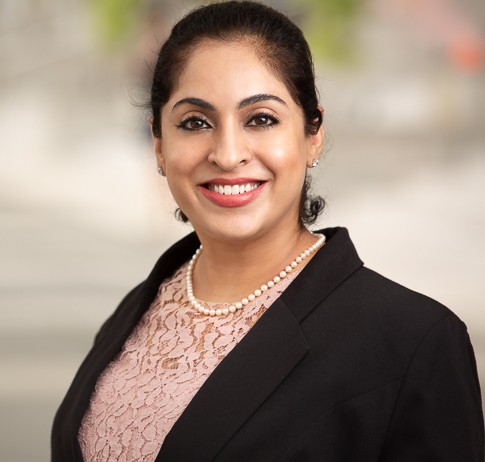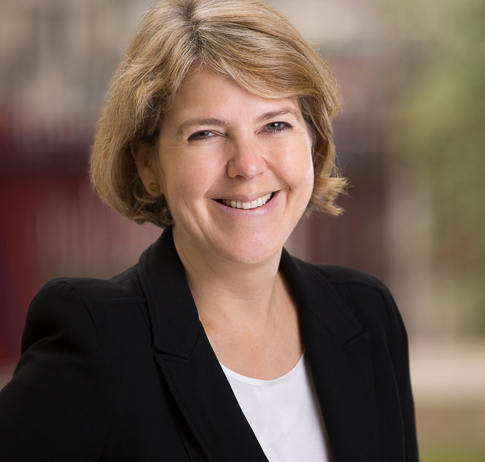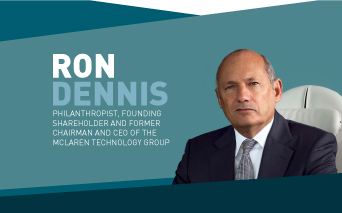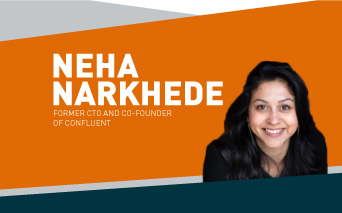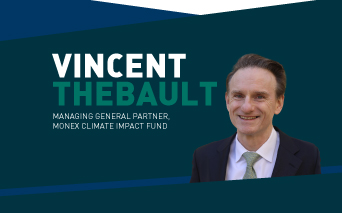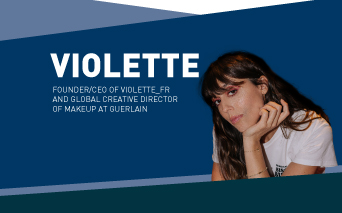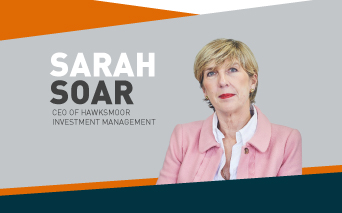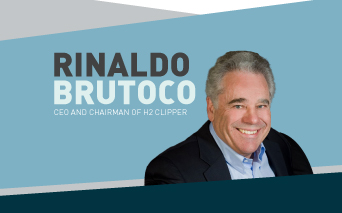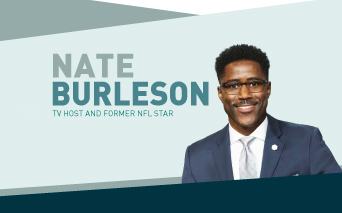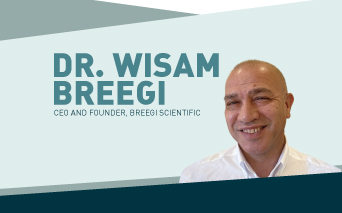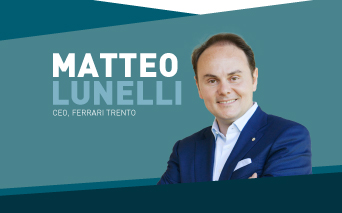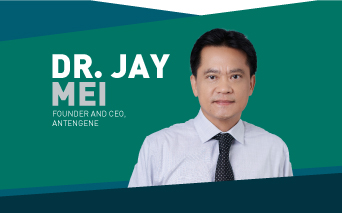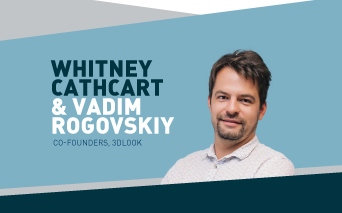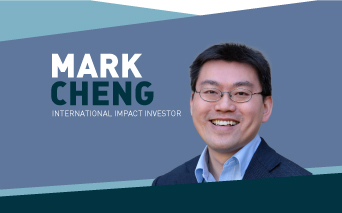Podcast
Entrepreneur, CEO, professor and renowned author Dr. Margaret Heffernan talks leadership, diversity and striving for excellence
7 May 2021 | 26 minute listen
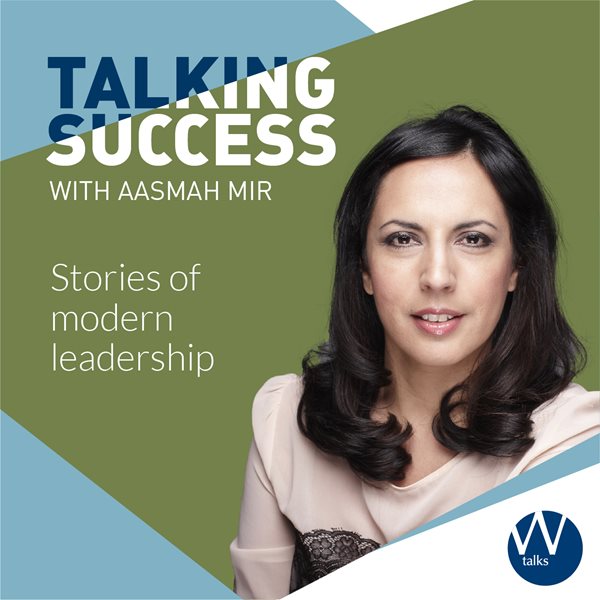
Episode 2 of Talking Success with Aasmah Mir
Aasmah talks to Dr Margaret Heffernan about how diverse teams help businesses solve complex problems, the role of strategic thinking in successful leadership, as well as how creating opportunities for others is her barometer for success. To hear more stories of success, click here.
Podcast host: Aasmah Mir
Aasmah Mir is an award winning broadcaster and journalist. She currently co-hosts the Breakfast Show on Times Radio and writes a regular column for The Times.
Guest: Dr. Margaret Heffernan
Dr. Margaret Heffernan produced programmes for the BBC for 13 years. She then moved to the US where she spearheaded multimedia productions for Intuit, The Learning Company and Standard&Poors. She was Chief Executive of InfoMation Corporation, ZineZone Corporation and then iCast Corporation, was named one of the “Top 25” by Streaming Media magazine and one of the “Top 100 Media Executives” by The Hollywood Reporter.
The author of six books, Margaret’s third book, ‘Wilful Blindness: Why We Ignore the Obvious at our Peril’ was named one of the most important business books of the decade by the Financial Times. In 2015, she was awarded the Transmission Prize for ‘A Bigger Prize: Why Competition isn’t Everything and How We Do Better’. Her TED talks have been seen by over 13 million people and in 2015 TED published Beyond Measure: The Big Impact of Small Changes. Her most recent book, ‘Uncharted: How to map the future’ was published in 2020. It quickly became a bestseller and was nominated for the Financial Times Best Business Book award, the CMI Best Business Book and was chosen as the ‘Medium Best of the Best’ business book. She is a Professor of Practice at the University of Bath, Lead Faculty for the Forward Institute’s Responsible Leadership Programme and, through Merryck & Co., mentors CEOs and senior executives of major global organizations. She chairs the boards of DACS and FilmBath and is a Trustee of the Centre for Effective Dispute Resolution.
Aasmah Mir (00:02) Welcome to ‘Talking success’ with Aasmah Mir in partnership with Withers, the international law firm.
Dr Jay Mei (00:10) We can work very hard around the clock, but there are certain things that are out of our hands. We just have to deal with it.
Whitney Cathcart (00:18) You know, if you’re living in a comfortable life, you’re not really learning. And life is about learning and taking challenges.
Mark Cheng (00:24) This isn’t just doing good. This is actually a huge market opportunity to really transform livelihoods and economies.
Aasmah Mir (00:33) I’m Aasmah Mir and in this series, I’ll be meeting successful, thought provoking people from a range of different sectors and businesses worldwide, from CEOs and tech entrepreneurs to international leadership experts. I want to hear about those crucial moments of their careers. The moment they decided whether to take the plunge and follow their dream, how they responded to a threat that could have cost them everything, or even that first profound inspiration that originally shaped their ambition to succeed. We all face crunch points in our lives. What matters is what we do next. So in these conversations, I’ll be drawing inspiration, right from the top, picking out the patterns, analysing the insights and finding out more about how successful people make the most of the moment, whether in times of adversity or when fortune smiles.
Margaret Heffernan (01:29) I think about successes. I want to do things, to do work where at the end I can look back and say, I absolutely gave that my best.
Aasmah Mir (01:38) In this episode, I’m speaking with former CEO and author of Wilful Blindness, Dr Margaret Heffernan. Margaret was born in Texas and raised in the Netherlands and began her career as a TV producer at the BBC. She then returned to the US to join the world of business and tech, acting as CEO of five different companies before returning to the UK. She has written six books, done a TED talk, become a lecturer at the University of Bath, and is now an internationally renowned speaker.
Margaret, thank you so much for joining me. I’ve got quite a short question that I’d like to start off with, and that is what is a tired cliché that you believe?
Margaret Heffernan (02:20) A tired cliché that I believe: it’s always now or never time. You have to pay attention to what’s in front of you. That doesn’t mean you don’t do other forms of thinking too, but imagining a problem will go away, imagining that, well, maybe something will turn up. You know, these are fantasies that encourage us not to look at the problem in front of us. And we make decisions every day about what to pay attention to and what to ignore. And in those decisions lies huge impact, which we may not see. So actually having the capacity to focus and take seriously, what’s right in front of you is I think pretty key to the way that I try to lead my life and run my business.
Aasmah Mir (03:13) Fantastic. You wear many hats. Is there a key theme do you think that links all of the work that you’ve done?
Margaret Heffernan (03:23) I think certainly since I became a writer, all the work I’ve done has been about how to think better. What are the mistakes we make that mean that we don’t think as well as we’re capable of doing. And that’s both as individuals and collectively, so how do we make better decisions? How do we keep ourselves better informed? How do we talk to each other better? I think that’s absolutely a kind of organising principle of my work.
Aasmah Mir (03:53) And would you say that there was ever a defining moment that put you on this path, that informed your life or your career? Was there something that happened or didn’t happen?
Margaret Heffernan (04:05) There was certainly a moment when I was working in television and I was making this, you know, rather ridiculous film about how the rabbit came to be introduced into England. And I found myself in English countryside in the rain, on my stomach, trying to retrieve rabbits that had run out of shot and thought this is no job for a grownup, but actually what it made me think really much more deeply was that I like to do work where I think I really have something special to bring. And I felt at that time, although I had a very successful career as a television producer and filmmaker, I didn’t make films that I thought were good enough. And it really made me realise that somewhere, and I don’t know from where, I have a kind of sense of excellence and I don’t really like doing work that I feel falls below that.
(05:03) So it made me realise something about the kind of standards I expect from myself. And also I have to say from other people, which is probably why many people who worked for me in the past have described me as tough. I’ve had huge luck doing work I really loved and if you really love it, then you do feel a kind of deep desire to do it as well as you possibly can. And I don’t think I understood that about myself until I was, you know, flat on my stomach in the rain. And I think, you know, one last one, I went on a residential course at London Business School and we did one of these team exercises, you know, where we had to climb up a rock face and I hated the whole, you know, outward bound stuff of it. And our team was doing horribly, horribly and getting nowhere and disorganised and nobody could decide anything. And at some point I just cracked and moved in and organised everybody and got the exercise done and over with. And that definitely taught me that in moments of massive chaos, I can’t not lead. I mean, it’s a mixed blessing, but it taught me that if I put myself in a position where I couldn’t do that, I’d be very frustrated and unproductive.
Aasmah Mir (06:28) So you learned at this point that you were a leader and that you wanted everything done perfectly. At what kind of stage in your career was that halfway through, a quarter of the way through?
Margaret Heffernan (06:42) It was probably about a third of the way through, and it wasn’t about doing things perfectly, but I couldn’t stand faffing about, and I couldn’t stand when something needs to be done, nobody willing to take the lead.
Aasmah Mir (07:01) Absolutely, because then obviously nothing happens and everyone’s kind of paralysed and nothing is achieved. What about your approach to making decisions then? I can’t wait to hear how you do that.
Margaret Heffernan (07:13) Well, it’s interesting. I think it’s changed a lot over time, but I think the way that I now tend to make decisions is I’ll certainly talk to a number of people who, for whatever reason, I think might have some insight. I’ll do quite a lot of thinking about, ‘well, what if it doesn’t work out? Then what?’ So I think of that as a sort of pre-mortem and I do a lot in my daily life of post-mortems of, ‘okay, why didn’t that meeting go well? Or why didn’t that project go well?’ But then generally after I’ve done all that kind of thinking, I tend to try to look away from the problem and stop working it and trust my brain to crunch a lot of the information I’ve been feeding it. In general, I have to say that has never let me down. Having said that, of course, we all know that we always come up with the narrative in which we look, you know, generally intelligent, sane, productive, creative. So I’m rather sceptical of my own post-game analysis.
Aasmah Mir (08:21) And what about the last year? I’m fascinated to know whether at all that has affected how you approach issues like leadership and decision-making or whether you’ve noticed changes in other people that you deal with?
Margaret Heffernan (08:38) Great question. I mean, I think it’s changed everybody, I think we just can’t tell how yet. One thing that happened when the first lockdown occurred is, quite kind of unthinkingly for me, I set up a whole bunch of projects because it just seemed to me very much in the moment that they needed to be done. So on a banal level, I live in an English countryside next to quite a big farm shop and the farmer who runs it was talking to me saying: ‘Gosh I wish we could do deliveries’. I just said, ‘I can do deliveries for you’ and found myself running a team of 10 drivers for four months, which was not really what I’d expected, right? At the same time, because I work for a firm that mentors senior and chief executives, and I also, outside of that do a huge amount of work with the NHS, I brokered a relationship between the two, so that everybody in the mentoring forum was mentoring for free three or four NHS leaders during the first lockdown.
(09:45) It was a stupendous project from which we all learned an enormous amount. And one of the things I learned was that when I have brilliant ideas, I probably ought to count to 10 before I articulate them because it turned out to be very, very, very, very, much more work than I had anticipated. And so I’ve certainly learned that under pressure, I can generate creative ideas at a deeply alarming speed and they may all be really good ideas, but I have now learned that I will always underestimate the amount of work that they involve, not just for myself, but for other people. So I’m now a little scared of myself and what other people have learned, I think it’s obviously hard to generalise because everyone’s had a very personal experience. The work I’ve done with leaders is I have seen them move into a highly tactical adaptive mode with great speed and by and large, great compassion and delegated because they had to a lot of decision-making to a much more local level and done all of that brilliantly.
(11:03) And as we come out of lockdown, it’s very obvious to me that anybody in a leadership position now has got to do some very deep imaginative long-term thinking, because we’re coming out of lockdown into certainly a mental health crisis, certainly an inequality crisis, and certainly a climate crisis. And these are all long difficult problems. And without long-term strategic thinking, we will not solve them. And I cannot point to a single leader I watch or work with who knows how to do it. They are all stuck. And so how we get out of the very validating, you know, quick fire decision-making mode to something that’s harder and deeper and longer, I think, is one of the biggest problems we face right now.
Aasmah Mir (12:07) How do you think that you will work your way through a post-coronavirus, post-lockdown scenario when it comes to decision-making and planning ahead and just… well, just existing?
Margaret Heffernan (12:23) I mean, for myself, I think I’ve quite a strong sense of what it is I want to spend the next 10 years doing. What I will also be doing is working with a lot of organisations and leaders of those organisations to look at the kind of inequality and opportunity and employment that exists and to look at the gigantic upheaval that climate change represents. You know, this is the biggest crisis we have ever faced. It will make the pandemic look like, you know, a village hall dress rehearsal, and we owe it to future generations to do everything we can to devise a way through it. And it’s tricky because people are tired and they’re rattled and they feel anxious about what the future looks like. I mean, just, you know, the stresses on people are huge. So I’m not too fussed about me, but I’m very, very fussed about the people I work with and the people who really are waiting to see people in leadership positions, not just make big statements, but actually roll out plans that give them hope in the future. And until there’s an economic, financial, logistical, or technical understanding of how we get to these glorious targets, we’re just wasting time. And everybody knows this, everybody in the C-suite knows this, and everybody is kind of looking left and right to say, okay, so who’s gonna go first, right? It’s like a game of chicken almost.
Aasmah Mir (14:00) Now, you’ve mentioned a few times one of the kind of problems that’s been laid bare by the pandemic as inequality, and inequality doesn’t necessarily translate into diversity, but I know that that’s something that you talk quite a lot about, diversity in business. And diversity in business and diversity itself means different things to different people. So what to you is diversity in business?
Margaret Heffernan (14:28) Diversity in business is having a lot of people around you whose backgrounds are not like yours, whose expertise is not the same as yours, whose working assumptions are different from yours, who think differently from you. And I’ve been very lucky by and large in my career, much more by accident I have to say than by judgement, to work with highly, highly diverse groups of people. And A: that’s been a lot more fun; and B: I think it’s really the major cause for what success I’ve had, but it certainly means I pay a lot of attention to all the reports and statistics and data of it show that diverse groups of people can solve more problems more quickly, can see more options and generally are part of, or critical to, highly successful organisations. Now, I think all of this has become spectacularly misinterpreted.
(15:31) People think it’s about political correctness, which it’s not. People think it’s a fad, it’ll go away, which it won’t. But it does require that we all start to think about each other quite differently. And if we’re serious about getting there, that is going to mean that a number of kinds of people who thought that certain jobs were theirs by right will find that they aren’t and that some sacrifice is going to be called for, for those who have previously enjoyed their privilege. This is going to be very awkward and it’s going to be, is being, deeply resisted. My generation has really had the best that the developed world had to offer. And, you know, to the degree that we can step aside and make some mobility for the younger generations, I think we have to do that to the degree that, you know, white middle-class, Cambridge educated people like me have to step aside so that people with different backgrounds than mine can get ahead. I think we have to do that. And I think we have to do it with pride, not whining.
Aasmah Mir (16:45) You said at the beginning of that answer that you’ve been lucky enough to work with diverse teams and it had had a positive impact on whatever project you’ve been working on. Can you give me an example of when working with a diverse team boosted the result, made things better?
Margaret Heffernan (17:03) Sure. So the first tech company that I ran, we had acquired a piece of technology from BBN, which was the astounding kind of research company. And as we started deploying it, we realised that it had a fundamental flaw, which was that it demanded so much processing power, that the more customers we got, the more expensive it became to run. You know, this was a pretty defining kind of problem, if we couldn’t solve it, we could never actually make a business based on this software. And, you know, the engineers had worked this problem from every angle and could not figure out how to find some efficiency in the technology. And so at one point I just decided, cause we were quickly running out of options, just simply bring the whole company together and explain, you know, what the problem was and saying, ‘look, the engineering crew is working on this, but we need any ideas from anybody’.
(18:06) And one of these very young marketing people came in one morning and said, ‘I don’t really understand about the coding, but if we thought about it this way, instead of that way, would that help?’ And it saved the business, absolutely saved the business. Now I can now tell you what I didn’t know then, which is that this happens all the time that people solve problems working outside their domain expertise. And I can point you to the literature and I can point you to the data, but actually that was diversity in action. That was one kind of mind applying itself to a different kind of problem. And that’s what you get.
Aasmah Mir (18:53) Let’s talk about the concept of success now. Is that a concept that you’re comfortable with and, if so, when would you say that you felt you were most successful in your career?
Margaret Heffernan (19:10) It isn’t really a concept that really does much for me, I have to say. I mean, I think like most writers, when I finish a book, I generally think it’s a flop and I don’t really understand the book, you know, on some level until people start to read it and I start to see what they see in it. And I know a lot of writers who feel the same way. So if I cared about success, I would have stopped, but I care about other things more, I guess, is really the truth. Because do I care about success? I’m sure I do. So how do I think about it? I mean, it comes back to the moment of, you know, lying on my stomach in the rain. I think about success is I want to do things, to do work, where at the end I can look back and say, I absolutely gave that my best.
(20:04) And I don’t know if it’s good enough, but I know I gave it my best. Increasingly how I feel is that what success I’ve had is only useful to the degree that I use what it’s given me to help other people. I feel this really strongly, as a member of a group of people on the planet that have had the best that the world had to offer in terms of, you know, education, upbringing, physical and personal safety, comfort, opportunities. Having had all those good things, you know, this is my mantra with my kids: you can’t just consume, you have to contribute. So, I mean, it’s all sounds rather pious, but I’m very obsessed with how do I use the good things that success has brought me to help other people be successful? I think that’s what really floats my boat.
Aasmah Mir (21:04) If you look back on your career so far, are you able to pick out two or three key lessons or just beliefs that you had that you had to completely reverse?
Margaret Heffernan (21:20) I think I’ve certainly learned that leadership is not about you. I think there were times in my career where I really made some bad mistakes and when I try to analyse why I think it’s because I thought as a leader was all about what I knew and what I did. And I definitely know that that’s no longer true, that actually the measure of a leader is how they relate to and get the best from other people. And that doesn’t mean that they’re just, you know, sitting back and watching it, but it’s much more about other people than about you. And I think I’ve also, kind of coming back to this it’s always now or never time, learned that if something starts to go wrong, catch it early. If you ignore it, it won’t go away. It’ll get worse. And this is kind of, you know, the moral of my book, Wilful Blindness. You know that in ignoring something that seems awkward, uncomfortable, you know, we make life easier for ourselves, but actually what we do is we give permission for that bad thing to persist and grow.
Aasmah Mir (22:34) Absolutely. It’s something we can all completely relate to. I have some very light and very quick fire questions that I would like to end on. So these are one word, maybe three. I might allow you three words, Margaret, but you get the general gist. So if you’re ready, let’s go for it.
Margaret Heffernan (22:54) Okay. Right.
Aasmah Mir (22:55) Which one word sums up your working style?
Margaret Heffernan (23:00) Disciplined.
Aasmah Mir (23:02) What’s your favourite time of the workday?
Margaret Heffernan (23:04) Morning.
Aasmah Mir (23:06) If you had a magic wand, which one thing would you change about the way people work?
Margaret Heffernan (23:13) Better listening. People need to learn to listen. Everybody talks, we need to be better listeners.
Aasmah Mir (23:20) So true. What’s your pet peeve or pet hate workwise?
Margaret Heffernan (23:25) Oh golly, there’s so many, I’m trying to think. What gets the crown?
(23:33) Multitasking. Multitasking is a bust. We now know there’s a mountain of evidence that people who multitask find it much harder to retrieve the information that they’ve been handling and that it’s a much more exhausting way to work. So people think they’re being super-efficient, but actually they’re just doing everything they’re trying to do less well. And it is very tiring and it makes people super anxious. So I’m a big believer in mono-tasking.
Aasmah Mir (24:09) If you had to use only one, when making a decision, would you choose your head or your heart?
Margaret Heffernan (24:25) I don’t think they’re separate. I mean, your brain can’t function without your heart, your heart functions because the brain tells it what to do. I think they are co-dependents.
Aasmah Mir (24:30) Good answer. And finally, if you weren’t working in your current role, or roles in your case, what do you think you would be doing?
Margaret Heffernan (24:41) I honestly don’t know because I love what I’m doing so much. I can’t think of anything I’d rather do. If I were younger, I might’ve become a singer. It’s just terribly smarmy and smug, but I think I’m incredibly lucky to do what I do. And I just wish I had more time to do it in.
Aasmah Mir (25:06) Yep, absolutely. Margaret, thank you so much. I have learned a lot from you. Thank you so much for talking to us.
Margaret Heffernan (25:14) Well, it’s my pleasure. Thank you for your wonderful questions.
Aasmah Mir (25:20) Margaret was amazing. I loved everything she said. She’s just so wise, she has this kind of pragmatic energy, but she’s always thinking, she’s always coming up with ideas, she’s able to look back at her career and just assess it quite dispassionately instead of beating herself up about things that went wrong. And I also love the way that she’s redefined the concept, quite traditional concepts, of leadership and success in business and put them into kind of language that we can all relate to. Just absolutely fascinating.
Thank you for listening to Talking Success.
In the next episode I’ll be speaking to Vadim Rogovskiy and Whitney Cathcart from body scanning company 3DLook about risk taking, working together and the future of fashion.
You can find out more about Withers on their website withersworldwide.com.
Talking success is a feast collective production. The producer is Hannah Varrell. The executive producer is Kate Taylor, and I’m Aasmah Mir.
Goodbye.

